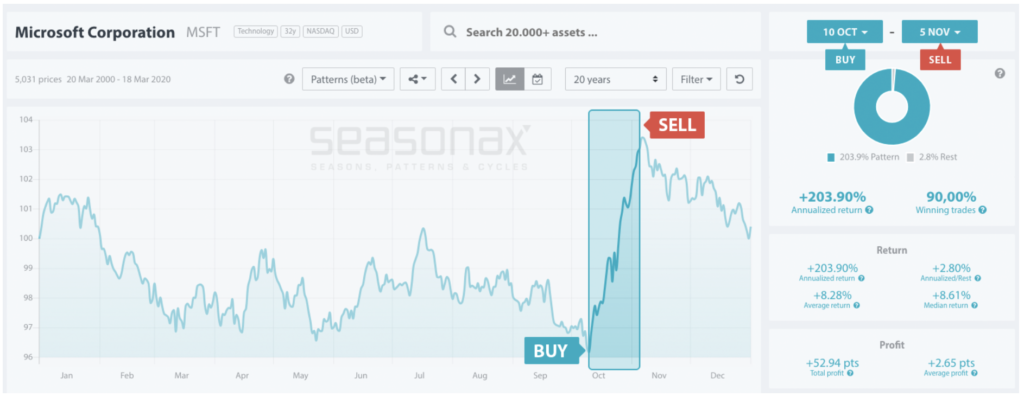It really can be a great life if you know how to make money in stocks.
As we get older, our ability to earn money gets harder. That’s why many people in their post-retirement years rely on their ability to Make Money in the Stocks.
For more than 50 years, I’ve bought and sold stocks, bonds, mutual funds, ETFs, options, futures contracts, coins, stamps, real estate, and a bunch of other things to earn money.
I’ve also invested in my education to make sure I won more times than I lost. I’ve put in the time to learn how and when to buy and sell stocks. I’ve made a lot of money and fortunately, I didn’t give much of it back.
He Didn’t Know How to Make Money in Stocks
Being smart isn’t enough if you don’t do the work. I should tell you about the professor. I never met him, but his widow told me the story. She said he was a professor at a very well-known university, and he was a very intelligent man. When he retired, their nest egg was a little more than a million dollars. Long story short, within a year, his buying and selling stocks, reduced their million to fifty thousand dollars. The stress killed him. When he died, he left his widow fifty thousand dollars to fund the next 20 or 30 years of her retirement.
I tell you this story to make sure you understand the gravity of buying stocks and other financial instruments without doing the work it requires. It takes time to read and study the workings of the stock market.
Some people will tell you about a broker who made them a bunch of money but the truth is, no one has your best interest at heart as much as you and your loved ones do.
History of Learning How to Make Money in the Stock Market
So, throughout my life, as I said, I’ve invested in stocks and have had some great winners.
When I started investing, we had to look at the newspaper to see what happened yesterday. Or we would go down to the broker’s office and watch the ticker (a lot like watching paint dry).
Then we started trading online. We were able to see what happened within the past 15 minutes.
But now, I can get a good idea of what is likely to happen in the next 30-60 days. How is that possible?
I’ve always known that oil has seasonality to it because, in some months of the year, more oil is used than in other months. I also knew that gold was seasonal because, in some cultures, people give it as holiday gifts, and prices fluctuate accordingly.
So with this in mind, a few years ago, I set out to find charts that showed the seasonality of these commodities. I not only found charts for gold and oil, but I also found charts for other commodities as well. And, I also found charts for the S&P 500, and the Dow Jones Industrial Average. Eureka!
Know what I learned? I was right and for the most part, oil and gold both were seasonal — outside of unplanned disruptions — and I made some pretty good money trading USO (an ETF that tracks the price of oil).
The Discovery that Showed Me How to Make Money Stocks – the Easy Way
So, last week, I found an amazing tool to help me pick stocks. It’s called Seasonax. I have already traded with it and have already seen positive results.
Not only that, I reduced the time it takes to find likely candidates for successful trades.
If you go to the site, watch the video that explains how it works and how you can use it for your maximum profit potential.
Seasonax utilizes award-winning algorithms and analytical tools to show me how to apply recurring seasonal patterns to my daily trades. I’ve been able to utilize the Seasonax stock screener to automatically identify strong trading signals starting from a specific date. It also shows me the stocks to avoid.
When I first started using the system, I was blown away. I made money on my very first trade.
I have never found any tool to help me spot trading opportunities and it takes very little time.
Here’s some information from their page:
Take Advantage of Seasonality
In 2019 a scientific study in Rotterdam encompassed 200+ years and 68 markets. It showed that a seasonality-based investment strategy indeed works. In fact, it actually outperforms far more popular strategies – what more could I want?
To benefit easily from seasonality, Seasonax shows you the exact date when to buy and when to sell individual assets.
The hardest part of buying stocks is knowing when to sell them. Seasonax makes it easy to spot the best time to sell to maximize profits.
The seasonal chart below depicts the average course of Microsoft over the past 20 years.

Microsoft typically rises during the highlighted time period from October 10th until November 5th. This seasonal pattern recurs almost every year! In this period Microsoft rose on average by 8.28% and gained 90% of winning trades over the past 20 years. This amounts to an impressive annualized gain of 203.90%! In these 18 trading days, you could have earned more than over an entire year.
Seize the opportunity and stay ahead of the market!
Don’t take my word for it. Try Seasonax for three days without obligation.
A final note: If you buy a stock and hold on for dear life, this may not be for you, but you should check it out anyway.
Here’s to your success!
Before You Dive into the Stock Market: A Clear Warning
Before you leap into the world of stock trading, it’s crucial to tread carefully and equip yourself with a solid understanding of how it all works. Investing without sufficient knowledge can spell disaster for your finances. Here’s why you should proceed cautiously:
- Knowledge is Power: The stock market is complex, and influenced by a multitude of factors. Take the time to educate yourself thoroughly. There are plenty of resources available to help you grasp the fundamentals, from books to online courses.
- Practice Makes Perfect: Consider trying your hand at paper trading. It’s like a dress rehearsal for real investing, allowing you to simulate trades without risking actual money. Use virtual platforms or spreadsheets to experiment with different strategies and gain valuable experience.
- Consistency Counts: Aim to maintain a positive track record with your paper trades. While it’s not a foolproof indicator of success in the real market, it’s a good sign that you’re heading in the right direction. Analyze your trades, identify patterns, and refine your strategies accordingly.
- Manage Your Risks: Every investment comes with risks. Learn to assess your tolerance for risk and establish clear objectives before diving in. Diversification, research, and disciplined decision-making are key to managing these risks effectively.
- Seek Guidance: Don’t hesitate to reach out to financial advisors or experienced investors for advice. They can offer personalized insights tailored to your goals and risk tolerance. Joining investment clubs or online communities can also provide valuable support and knowledge sharing.
- Stay Informed: The stock market is always changing. Keep yourself updated on market trends, news, and economic indicators that could affect your investments. Continuous learning is essential to adapting to these changes and making informed decisions.
In summary, investing in stocks can be lucrative, but it’s not without its risks. Take the time to educate yourself, practice paper trading, and develop solid strategies before committing real money. By proceeding cautiously and making well-informed decisions, you’ll greatly improve your chances of success in the stock market.
If you found this article interesting, you may also like Aging Gracefully and How You Think.
This article contains sponsored links.
